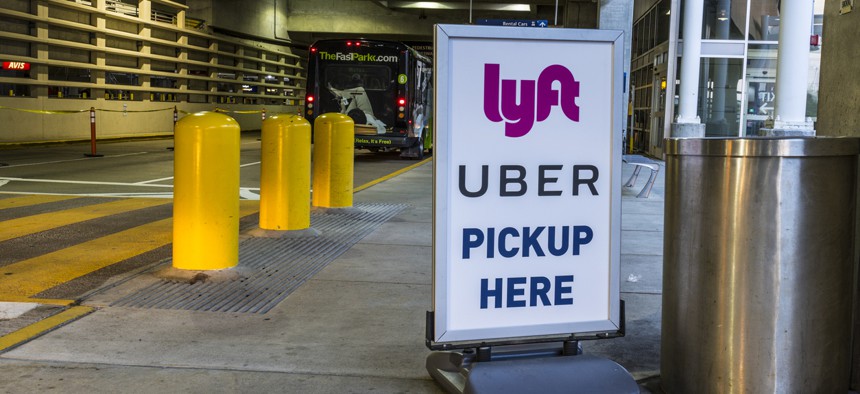Lyft and Uber Establish Legal Funds to Protect Drivers from Texas Abortion Law

istock.com/jetcityimage

Connecting state and local government leaders
The ride-booking companies said they would cover legal fees if their drivers are sued under the state’s new law, which allows private citizens to file lawsuits against anyone who “aids and abets” a woman in obtaining an abortion after six weeks of pregnancy.
App-based ride-booking companies Lyft and Uber said they would establish legal funds to defend drivers who face lawsuits for transporting women to abortions in Texas after the U.S. Supreme Court declined to block a new state law that bans the procedure after six weeks of pregnancy.
The law, which took effect Sept. 1, prohibits abortions whenever an ultrasound can detect a “fetal heartbeat,” which can occur as early as six weeks of pregnancy. (Medical experts have said that term is misleading, as ultrasounds at that stage of gestation are detecting electrical impulses from cells that will eventually form a baby’s heart.) The law provides no exceptions for victims of rape or incest.
The state will not use government officials to enforce the policy, relying instead on private citizens to sue medical providers as well as anyone who “knowingly engages in conduct that aids or abets” an abortion.
The minimum penalty for those actions is $10,000, according to the legislation, which permits legal action even if defendants are not aware that their actions are “aiding and abetting” abortion. Legal experts have said that could leave drivers liable, even though ride-share employees rarely know the reason for their clients’ ride requests. In response, the CEOs of Lyft and Uber said they would establish legal defense funds to defray costs for drivers who are sued for simply doing their jobs.
“Imagine being a driver and not knowing if you are breaking the law by giving someone a ride. Similarly, riders never have to justify, or even share, where they are going and why,” Logan Green and John Zimmer, Lyft’s co-founders, and Kristin Sverchek, its general counsel, said in a blog post. “Imagine being a pregnant woman trying to get to a health-care appointment and not knowing if your driver will cancel on you for fear of breaking a law. Both are completely unacceptable.”
The company’s Driver Legal Defense Fund will cover “100% of legal fees for drivers” who are sued while working for Lyft. Green, Zimmer and Sverchek said the company would also donate $1 million to Planned Parenthood “to help ensure that transportation is never a barrier to health-care access.”
“This law is incompatible with people’s basic rights to privacy, our community guidelines, the spirit of rideshare, and our values as a company,” they said.
Uber will do the same, Dara Khosrowshahi, the company’s CEO, said on Twitter.
“Drivers shouldn’t be put at risk for getting people where they want to go,” he wrote. “Team Uber is in too and will cover legal fees in the same way.”
The companies are two of a growing number of corporations to speak out against the law. Others include the dating app Bumble, which said on Twitter it had also created a legal relief fund, and Fort Worth, Texas-based American Airlines, which said via a spokesman that it was “disappointed” by the legislation.
Law Faces Roadblocks
The fate of the law remains unclear. A district court judge in Texas on Friday granted a temporary restraining order, blocking the anti-abortion organization Texas Right To Life from suing the state’s Planned Parenthood clinics.
In its unsigned order declining to intervene before the policy took effect, the Supreme Court noted that its decision “is not based on any conclusion about the constitutionality of Texas’s law, and in no way limits other procedurally proper challenges to the Texas law, including in Texas state courts,” meaning that future legal appeals could eventually make their way before the justices.
The law has also encountered less formal roadblocks. GoDaddy, a domain site, took down a whistleblower website created by the anti-abortion organization Texas Right To Life to solicit anonymous tips about women receiving abortions in violation of the law. The site’s removal came after TikTok users and abortion-rights activists flooded the page with bogus tips, including claims that Marvel superheroes were having illegal abortions and, notably, a tip that contained only the script of “Bee Movie,” a 2007 animated film, The New York Times reported.
Kate Elizabeth Queram is a senior reporter for Route Fifty and is based in Washington, D.C.

NEXT STORY: Protecting New York City 20 years after 9/11




